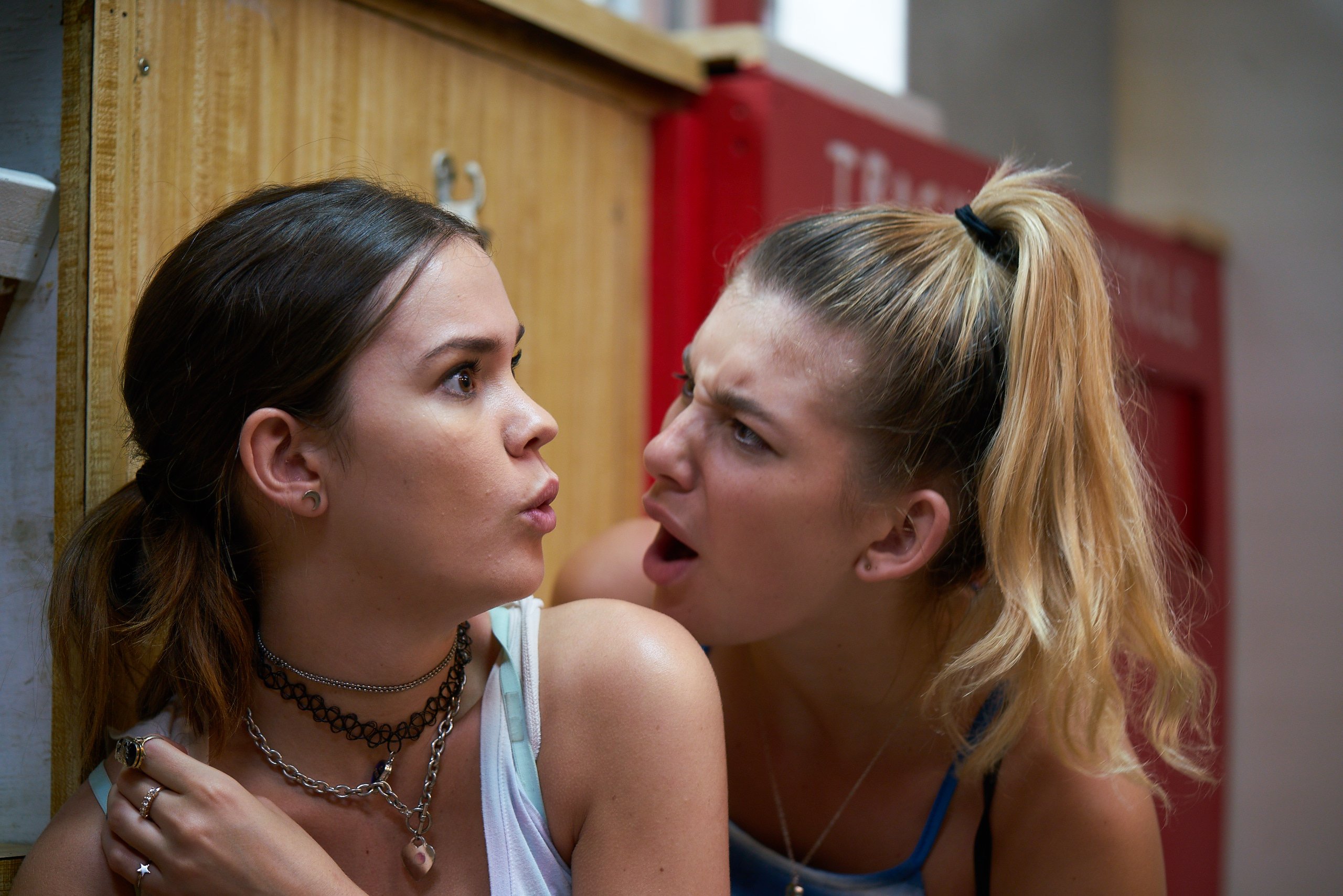‘Never Goin’ Back’ | Film Review


The indie movie hotbed A24 has released all different kinds of breakout hits since its inception in 2013: Ladybird, Moonlight, Ex Machina, The Florida Project, The Witch, Room, Hereditary. If one were forced to find commonalities, there’s a subset of this studio’s movies that lean toward the youthful, the hip, and the ideal of the trashy indie that’s actually calibrated to a certain taste. The studio, after all, made its bones on Spring Breakers and The Bling Ring.
The new Never Goin’ Back, however, speaks to the fact that there is no hacking the A24 vibe. The debut feature from director/writer Augustine Frizzell shares a great deal of DNA with its studio stablemates, just not a clear sense of vision or cinematic reality.
We open in a Dallas suburb, but it could really be anywhere in America where poverty has sucked the energy out of a community and concrete rules the landscape. Angela (Maia Mitchell) and Jessie (Camila Morrone) are high school dropouts who contrast the sweltering depression all around them with an excitably bro-ish relationship. That bond sends them careening from one raucously anti-authoritarian interaction to the next. Their latest act of impulsivity is to blow this month’s rent money on a trip to the Galveston beach but earn it all back by working every available diner shift leading up to their dream vacation.
When it comes to Angela and Jessie’s centerpiece relationship here, it’s difficult not to simply recite what the movie wants you to feel. “These two are Thelma and Louise for a disaffected Generation Z. They hilariously prove that girls can get as much milage out of puking and dick jokes as guys. They’re malcontents whose relationship to one another is actually quite tender.”
But those suggested descriptions aren’t exactly what’s happening on screen. For one, Angela and Jessie are not different enough to comprise a dynamic relationship. They both swear like sailors and buy into hair-brained plans with the same gusto. There’s also a curious romantic dynamic that feels stapled on here only for the sake of edginess. The BFFs sometimes make out when they do cocaine in their shared bedroom? It’s an odd, under-explored choice. The girls present as sexually obsessed, like so many teenagers, but the movie never broaches their sexuality (re: each other or anyone else) as intimate or tied to identity in any way.
Some of these character dimensionality issues stem from the film’s backdrop. Frizzell’s movie is in the milieu of fellow A24 release The Florida Project, but there’s almost no attention paid to Angela and Jessie’s very real struggle just to live. Every sweaty indignity of abject poverty is treated as though it was part of a Judd Apatow comedy about lovable losers. Hip-hop cue after hip-hop cue. Interlude after interlude where the girls’ deadbeat brother (Joel Allen) and his friends (Kyle Mooney and Kendal Smith) consider hyperbolically illegal ways to make the rent themselves.
Ultimately, my question is how do you tell a story about drug-dependent, unschooled 16-year-olds losing their jobs, doing jail time, and almost prostituting themselves to pay for lodging without in some way, any way acknowledging that this is a tragedy? Or at least that the girls’ ability to not consider it tragic is the blissful ignorance of youth?
Despite an inoffensive 86-minute runtime, a decent clip, and an LOL-worthy scene in which Michael Bolton’s “How Am I Supposed To Live Without You” is intercut with our stoned heroes craving pancakes, this is a misfire. It’s easy enough to see what Never Goin’ Back is playing at. After all, we’re living in a popular and overdue age for girls and women testing what it is to be rebellious on screen. But this is more Bad Moms than Broad City, more Snatched than Thoroughbreds. Bad behavior that’s such a matter of course just doesn’t feel all that good.
-Chance Solem-Pfeifer



